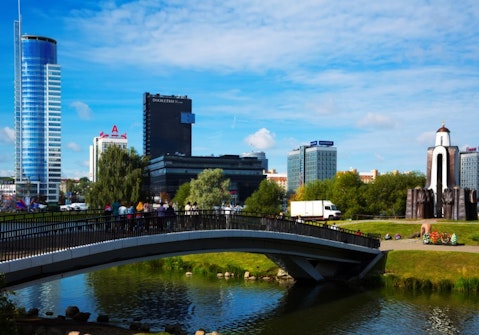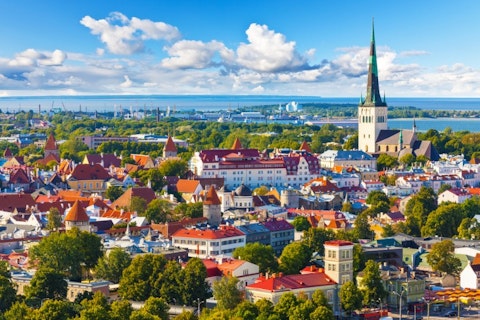The 10 most xenophobic countries in Europe are a prime example of the fact that Europe is not quite as progressive as it is made out to be. Europe is considered by some to be the most advanced continent on the planet, with Western Europe being a host to countries with excellent economies and a positive, liberal outlook. Countries like Germany, France, Italy, Switzerland, Austria, Denmark, Netherlands and the Scandinavian countries are benchmarks by which other countries try to emulate. And to a certain extent it is true that many European countries, in addition to bustling economies, have always been more accepting and tolerant than other countries, including the United States of America. After all, while being transgender is a recent issue in America, one which is still extremely controversial which has involved everyone, from the President of the country to its average citizens, in Norway, it was nothing exceptional even back in the 1920s! After all, Magnus Hirschfeld, a German physician and sexologist, was responsible for the creation of the first gay/lesbian/transgender organization in history. In 1897. Let that sink in for a minute. Apparently, many Europeans were more tolerant over a century ago than we are now.

Mohd KhairilX/Shutterstock.com
However, that does not mean that all Europeans are accepting of everyone, a point which allows us to mention xenophobia prevailing in Europe. While most countries have become progressive with age, it seems Europe is regressing and there is a valid reason as to why that is happening. When the civil war in Syria took place, along with the revolutions in Arab countries, tens of thousands of people fled their countries to establish a life in relative security in another country. Some European countries took these refugees with open arms, and many believe these thousands are not contributing positively to the country. But then the Paris attacks occurred in November 2015 and the mood turned sour. When 130 people die in a country which has little to no history of extreme violence, people will be angry. Add this to the sexual assaults carried out by immigrants on New Year’s Eve 2016 in Germany, which further stoked anti-immigrant sentiments among the locals and now, it is not surprising to see that Europeans are not as welcoming as they once were.
Another reason why Europeans can be xenophobic is the fact that they are afraid that the immigrants will fail to assimilate in their country and accept their culture, and will instead try to force their own cultures and traditions. This is a serious issue because it is quite understandable for the nationals to want immigrants to accept their culture and live in accordance with it. After all, if you invited someone to your house and they started enforcing their rules instead of adhering to yours, you would be likely to never invite them again.
An important thing to remember is that there is a subtle difference between xenophobia and racism. While many on the the internet are likely to use the two terms interchangeably, that is incorrect. Xenophobia refers to the prejudice or dislike towards foreigners, i.e. people from other countries. A racist is a person who dislikes or is prejudiced against people of different races. As I said, the difference is subtle but present. Perhaps the reason that the two terms are used interchangeably is because most people who are xenophobes are racists as well and vice versa. If you want to learn more about the countries where xenophobia is barely present, you should head on over to the 10 Least Xenophobic Countries in the World.
Our rankings were based on the World Value Survey, which covers data from 2010-2014. However, the survey did not cover many European countries, with only 15 countries in the survey being from Europe. Hence, we also included the European Value Survey, though unfortunately, the last survey was carried out in 2008, and it is likely that the percentage of people who are against immigrants has increased due to the recent hysteria surrounding immigrants. The survey asks participants of dozens of countries different questions and assesses the responses of the participants. One question which we thought relevant to xenophobia was ‘On this list are various groups of people. Could you please mention any that you would not like to have as neighbors?’ The countries where the largest percentage of respondents answered with ‘Immigrants/Foreign Workers’ ranked higher on our list. It is interesting to note that while many countries don’t often have a significant issue with foreign neighbors, the majority of respondents in most countries still wanted to be given preference of immigrants when it came to jobs. So the basic response is, we are fine with foreigners as long as they don’t threaten our jobs. We should also consider that only a couple of thousand respondents were selected from each country, and the sample may be too small to accurately represent the preferences of each country.
Without further ado, let’s check those most xenophobic countries in Europe.
10. Germany
Percentage of respondents who did not want a foreigner/immigrant as a neighbor: 21.4%
Xenophobia in Germany was prevalent even before the recent mass immigration, and is seems like the feeling is here to stay. Ever since the sexual assaults that took place, the anti-immigrant movement has gained significant momentum and Vice Chancellor Angela Merkel, who has been in favor of accepting immigrants, has had to face extreme criticism for her policies in this regard.

Oleksiy Mark/Shutterstock.com
9. Austria
Percentage of respondents who did not want a foreigner/immigrant as a neighbor: 22.8%
While many would consider Austrians to be laid back, it turns out that Austria is one of the most xenophobic countries in Europe. Neo-Nazi ideology is on the rise in the country, which is xenophobic in its essence, and the rate of hate crimes is increasing as well.

Alex Poison/Shutterstock.com
8. Hungary
Percentage of respondents who did not want a foreigner/immigrant as a neighbor: 23.8%
Hungary is one of the most xenophobic countries in the world, let alone Europe, as evidenced by their major reluctance to take in refugees when the Syrian crisis was in full bloom. More than three-quarters of the population believes that taking in refugees will lead to a much greater chance of terrorism in the country.

TTstudio/Shutterstock.com
7. Serbia
Percentage of respondents who did not want a foreigner/immigrant as a neighbor: 24.4%
Eastern Europe has a strong presence in this list of most xenophobic countries in Europe, and Serbia is no exception, with the people often unwilling to be accommodating towards people of a different background.

Vladimir Nenezic/Shutterstock.com
6. Lithuania
Percentage of respondents who did not want a foreigner/immigrant as a neighbor: 27.9%
Lithuania ranks 6th in our list of most xenophobic countries in Europe. It has an extremely small population, and though it used to be a tolerant society, the citizens are now extremely hostile towards foreigners and immigrants.

krivinis / Shutterstock.com
5. Russia
Percentage of respondents who did not want a foreigner/immigrant as a neighbor: 32.2%
The far-right movement in Russia that’s up next in our list of most xenophobic countries in Europe has been growing for years and now express their xenophobic sentiments openly, which is why experts believe that xenophobia is now a major issue in Russia.

Alexander Smorodinov/Shutterstock.com
4. Georgia
Percentage of respondents who did not want a foreigner/immigrant as a neighbor: 32.8%
We are continuing our list of most xenophobic countries in Europe with Georgia that is one of the countries which has attracted criticism for its overall xenophobic attitude, and anti-Western attitude is extremely prevalent.

Copyright: sepavo / 123RF Stock Photo
3. Belarus
Percentage of respondents who did not want a foreigner/immigrant as a neighbor: 33.4%
Despite the fact that Belarus is home to people of various nationalities, the country is still not quite accepting of foreigners.

Iakov Filimonov/Shutterstock.com
2. France
Percentage of respondents who did not want a foreigner/immigrant as a neighbor: 36.5%
France ranks second in our list of most xenophobic countries in Europe. It has been averse to foreigners for a long time, and Paris is famous for how negatively the Parisians react to tourists or foreigners in the city. Now, with the attacks on Paris in 2015, the anti-immigrant sentiment has reached a boiling pitch and it seems like xenophobia in France is only set to increase. Most of the citizens in France, even in 2014, thought they had too many foreigners in the country, while a majority also thought that immigrants did not do enough to integrate into society.

Ioan Panaite/Shutterstock.com
1. Estonia
Percentage of respondents who did not want a foreigner/immigrant as a neighbor: 37.5%
While Estonia seems to be an incredible country to live in, its citizens do not look favorably upon foreigners in their country, which is why it is the number one on our list of most xenophobic countries in Europe. Estonia seems to be an incredible country to move to, with clean water, forests, beautiful scenery and excellent educational facilities. However, the country is incredibly xenophobic, to the point where it would be understandable if foreigners wanted to avoid all the facilities and opportunities Estonia offers. And while Estonia is making efforts to make the country more appealing to foreigners, as the local pool is not enough to satisfy the demand for workers. However, whether these attempts are successful or not, only time will tell. It is a very hard task to change the mindset of so many people simultaneously, which is why the enormity of the task should not be understated. If Estonia manages to complete this task however, there is no other reason for foreigners to avoid the country.

Oleksiy Mark/Shutterstock.com





